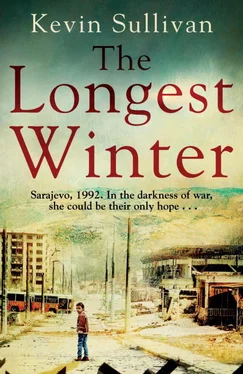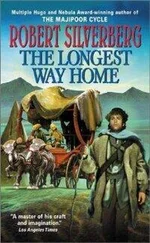‘Knew you’d be good at this!’ Željko said, his eyes wide open as if he was astonished by his own acuity. ‘I told Hans,’ he went on, speaking to Jasna who was standing listening to Milena, ‘I told him, our Milena’ll be great at the piano!’
Milena had to wait for three months before there was a place for her in the school music class. Four girls received piano lessons, on Tuesday evenings and Saturday mornings. Milena could already play by ear by the time she started lessons. During the three months she had to wait, she sat at the piano for an hour each day when she came home from school and ‘Three Blind Mice’ developed into other recognisable tunes. She never played one note that didn’t have a good chance of fitting usefully with the others. She was a natural.
The piano teacher quickly saw that the girl had talent. Milena touched the keys with a delicacy and sophistication that, as it became more assured, transformed lessons from a chore to a delight.
When she sat at the Hummel in the sitting room of Jasna and Željko’s house, Milena stepped onto a sandy beach. She looked at the ocean and walked barefoot on white sand.
By the time she was fourteen, she could sight-read. She accompanied the school choir. That gave her a certain renown, that and the fact that she lived with her aunt because her mother and father had run away. Milena played the piano the way other people speak. It was the way she articulated her fears and her hopes.
She was no happier at school than any of her friends. As soon as it was legally possible to leave, she did. Her first full-time job, when she was sixteen, was in a dress shop, where she worked for three years.
She came home from the dress shop one afternoon and found Jasna in the kitchen looking awkward and glum.
Milena sat by the table and lit a cigarette. Jasna lit a cigarette of her own and said uncertainly, ‘Milena, I’m going to live in Germany. Željko’s been promoted and he wants me there with him.’
Milena didn’t see why Jasna should feel bad about that. ‘What about the house?’ she asked.
Jasna blew smoke out quickly and stretched a hand towards Milena. Milena saw a tear in the corner of Jasna’s eye, threatening to breach a mascara-illuminated embankment of quivering skin. ‘Of course, we’re not selling. The house is here for you to live in,’ Jasna said.
Now Milena felt bad. The question seemed selfish; it had just popped into her head.
Jasna didn’t leave immediately. Preparing to move to Germany took her months. Željko was back regularly, and each time Jasna returned with him and stayed longer, until finally she went off with Željko and didn’t come back to Foča.
Milena paid rent into the bank every month, looked after the house, lived in it as she had always done. She stayed in Foča because it was as good as anywhere. She thought sometimes about going to work in Sarajevo. She could not have said why she never did – perhaps because she believed her mother and father might come back one day. They would not find her if she left Foča. Or perhaps she stayed for the very opposite reason. Sarajevo was where her mother and father had gone, at least at first. Perhaps she was afraid that she would meet them there. In the street, in a café, in a shop. She would not know what to say, how to speak, how to convey her thoughts.
Or perhaps she stayed simply because she liked Foča.
When she stopped working in the dress shop, soon after her twentieth birthday, she got a job in a café-bar beside the river. She sometimes played the piano there in the evenings. For a while it was one of the most popular meeting places in the town. Milena had the temperament for that kind of work. She pretended cheerfulness when she didn’t feel it; she learned how to chatter inanely to drunken customers; she learned how to spot trouble – looming arguments, bad blood – and nip it in the bud, with drinks on the house, or a friendly warning, or a word to Fudo, who ran things from his perch behind the bar.
There were more than forty journalists at the morning press conference in the PTT building. Danby sensed danger, especially since he knew the General believed the situation was under control.
The General thought the minister’s assassination could be treated as simply another tragedy in a long line of tragedies. He would not address the question of the UN’s responsibility.
Yet the deceased had been under UN protection. They had escorted a man among his enemies and had allowed him to be shot.
He might as well have been gunned down in the lobby of the General Assembly, the Professor remarked.
The minister had been travelling in a French APC. When it was stopped at a barricade the door of the APC was opened. Officially the UN refused to allow its vehicles to be inspected. Unofficially they were flexible.
On this occasion flexibility had led to murder. The door to the APC had been opened and a Rebel soldier had stepped forward and shot the minister who was sitting inside.
The reporters wanted to know why the door had been opened. Danby knew the briefing was going to home in on this single point and stay there. He also knew that there would be no satisfactory answer.
‘The General will be here in a moment or two,’ he announced. Bulbs were already flashing and television-camera lights started to come on. ‘He’ll read a statement first of all and then you’ll be able to ask questions.’
The air was adversarial when the General entered the room followed by the UN commander in the city and the colonel who had been present at the incident.
The General read out a statement in French and then in English. He condemned violence and called for reason and calm. Danby knew that his boss was thoroughly unprepared for what was about to happen, unaware that his obdurate refusal to address the issue of his own troops’ responsibility came over as fatuous and arrogant.
But it was worse than that, Danby realised. It was immoral .
The UN was not accountable. That was what the General was saying.
When he finished reading his statement, some of those who were present shouted questions, and some shouted abuse. The General blinked behind his spectacles, surprised. Danby let the mob shout for a few seconds and then he stood up and raised his arms and said, ‘One at a time!’
He pointed to a wire-service journalist and nodded amiably, as if they were in the middle of a regular briefing.
‘Who ordered the door open?’ the man asked.
It was the first question and the second and the third. It was at the core of the matter and the General didn’t want to talk about it. As the minutes passed, he pressed on, trying to charm, and then trying to be firm, and finally sounding petulant.
‘Did you order the back door of the APC to be opened?’ Brad asked the colonel, who had been sitting impassively as the General struggled beside him.
‘The door was already open when I arrived,’ the colonel said. ‘I was on the point of closing it when the shooting occurred.’
‘Why was the door open?’
‘I don’t know, but this is not an issue. I would in any case have ordered it to be opened,’ the colonel replied smoothly.
‘Where were you when the shots were fired?’
‘I had placed myself between the minister and the soldiers outside the vehicle. A soldier fired over my shoulder at the minister. The assassin was immediately pulled away by his comrades.’
‘Why did you not order your men to fire back?’
‘We were outnumbered. I ordered the APC to the field hospital here.’
Brad turned to the General. ‘At what time was the door of the APC opened and who ordered it to be opened?’
‘That is not something I can answer. This is not an inquiry! You don’t have authority to ask this!’
Читать дальше












